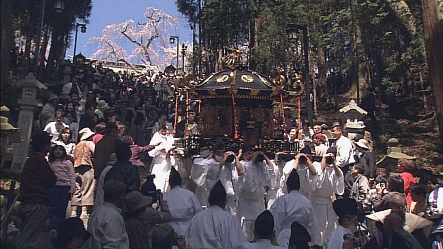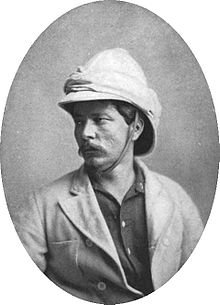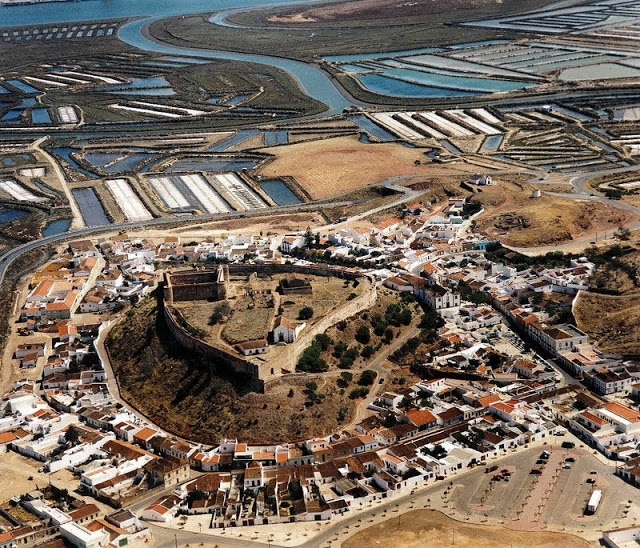1858 the current Big Ben cast, so maybe make a clock:
10th
10th March

Hote Matsuri: Shinto festival in Shiogama, Japan. There is yamato dancing, and people pray for safe homes and successful business. Shinto is Japan’s native spirituality, folklore and rituals, and means ‘way of the Gods’.
Tibetan Uprising Day:
Humans have lived in Tibet for 21,000 years. The Zhang Zhung culture originated the Tibetan Buddhism, Bon Buddhism, which is quite shamanistic.
Songtsaen Gampo was the founder of the Tibetan Empire in around 600 A.D., invading quite far into China to extend his kingdom. Korean general Gao Xianzhi broke the empire up trying to re-open the route to Central Asia, and by 750 most of Tibet’s land in Central Asia belong to China.
From the mid-9th century Tibet had an Era of Fragmentation, run by lots of little tribes.
Then the Mongolian Yuan Dynasty ruled Tibet for a while until 1346, when the Tibetan Phagmodrupa dynasty took over. In 1578 the first Dalai Lama was appointed.
In 1624 Portuguese missionaries arrived. All missionaries were kicked out in 1745.
In 1724 the Chinese Qing dynasty controlled Tibet, although the Dalai Lama was the official ruler.
In 1904 the Brits arrived and committed the Chumik Shenko Massacre, which they said was an accident.
In 1910 China decided it did want Tibet and deposed the Dalai Lama, who fled to British India. Tibet revolted, and China apologised, offering to restore the Dalai Lama’s title. He said he didn’t want a Chinese title, and for 36 years Tibet and China were independent from each other.
In 1914 Tibet gave South Tibet to British India, which China said was illegal. From 1950, the People’s Republic of China incorporated Tibet, which the Dalai Lama refused to accept. He fled to India and set up an exiled government there.
In 1958-61 China implemented the Great Leap Forward, changing the economy from an agricultural one to a collectivised industrial socialist one, causing the Great Chinese Famine. Nice one.
200,000 to a million Tibetans died, and 6,000 monasteries were destroyed as part of the Cultural Revolution (basically replacing all traditions and culture with Communism).
From 1980 General Secretary Hu Yaobang brought in some reforms that eased things up a bit, but Tibetan monks protested for independence so China cracked down on them.
Why not make some Tibetan prayer flags?
10th November


1871 Henry Morton Stanley finds explorer – ‘Dr Livingstone, I presume?” – go off on an adventure with a homemade explorer kit!
 http://makezine.com/2013/12/14/gift-idea-diy-explorer-kit/
http://makezine.com/2013/12/14/gift-idea-diy-explorer-kit/
1969 Sesame Street debuts
1989 Berlin wall starts to fall
1960 Neil Gaiman born – so read Fortunately the Milk or Coraline or Chu’s Day or, well, any of these.
10th September

2008 the Large Hadron Collider is powered up – try the BBC resources.
Amerindian Heritage Day (Guyana)
St George’s Caye Day (British colonists in Belize defeated Spanish in 1798)
Gibraltar National Day:
Gibraltar belongs to Britain officially, after we and the Dutch took it from Spain in 1704. Spain still isn’t happy about it (as you can see, it is technically part of Spain), but the Gibraltans voted to stay British. They keep control of most of their own laws and stuff; we just look after their defence.
Gibraltar is famous for having the only wild monkey colony in Europe – Barbary macaques, who love to eat out of tourists’ hands.
Day of the Workers in the Oil, Gas, Power, and Geological Industry (Turkmenistan, 2015, 2nd Saturday)
National Grandparents Day (2017, 2nd Sunday, US, Canada, Estonia)
Turkmen Bakhshi (2017, 2nd Sunday, Turkmenistan culture celebrated)
10th June
1793 the Jardin des Plantes opens in Paris, later becoming the first public zoo – so read zoo books:
What about making…. an edible zoo for lunch? (Use animal crackers?)

Portugal Day: Portugal comes from Portus Calle, or Celtic Port. It began as a society of tribes, mainly the Gallaecians and Lusitanians, but also North African Carthaginians and Syrian Phoenicians along the coast.
The Roman Empire took 200 years to defeat Portugal, eventually bribing the allies of their rebellious leader Viriathus to kill him.
There are still a lot of Celtic ‘Castro’ hillforts in Portugal and a lot of Roman structures like baths, temples, bridges, roads and houses.
In the 5th century Germanic Goths and Suebi invaded, and Portugal became the Kingdom of the Suebi. In 585 this was annexed by the Visigoths who then owned the whole of the Iberian Peninsula.
In 711 it became part of the Umayyad Caliphate, whose capital was Damascus and which stretched from Pakistan to France. The western half of this split and became the Emirate of Cordoba, later the Caliphate of Cordoba.
In 868 a central part of Portugal wasn’t really ruled by anyone and became its own County of Portugal.
In 1031 this dissolved into 23 Taifa kingdoms. Then the Almoravids from Morocco in 1086 invaded and the Almohads from Marrakesh in 1147.
During the Reconquista period, when Spanish Christians were taking back land from Muslims, the County of Portugal became the Kingdom of Portugal.

The first king was Alfonso Henriques (he had to defeat his own mother in battle to get the title) and he slowly drove the Muslim rule southwards and out of the country.
In 1373 Portugal allied with England, the oldest alliance in the world.
From 1415 Portugal was in the Age of Discovery, setting up colonies all over the place. Patronised by Prince Henry the Navigator, Portuguese explorers travelled around the Atlantic Ocean, the African coast and new routes to India and Asia, discovered Brazil and sent the first European missions to China and Japan.
In 1494 the Treaty of Tordesillas was signed between Spain and Portugal dividing the new world between them, as Portugal had a papal bull saying it owned all land south of the Canary Islands, even the bits it didn’t know existed!
In 1500 Portugal colonised Canada, long before the English arrived.

In 1580 Philip II of Spain became king of Portugal because its last two kings hadn’t left an heir, and dragged Portugal into the Eighty Years’ War with the Netherlands (of which Philip was also king).
When the Dutch gained their independence they started invading Portuguese colonies, so then there had to be a Dutch-Portuguese War.
In 1640 John IV decided he was king of Portugal, and then there was a Portuguese Restoration War with Spain to regain independence. About 600,000 Portuguese emigrated during the Brazil gold rush.
In 1755 a man called Sebastião de Melo, 1st Marquis of Pombelo, was made Prime Minister. He abolished slavery and regulated commerce.
When Lisbon was struck by an earthquake, he said “What do we do now? Bury the dead and take care of the living.” They tried new earthquake-proof buildings, testing models by letting troops march around them. You can still see them today in the Pombaline city centre.
After the king, Joseph I, was wounded in an attempted assassination, Melo went a bit power-crazy, expelling the Jesuits and prosecuting every man, woman and child suspected of involvement. But when Queen Maria I came to the throne she took away Melo’s powers and that was the end of that.
In 1807 Napoleon invaded. Britain helped Portugal expel his troops, while the royal family went to live in Brazil. Because the kingdom was now technically in Brazil, Portugal renamed itself the United States of Portugal, Brazil and the Algarves (a coastal bit of Portugal that was its own country at the time).
When the king, João VI, had to return to Portugal, he left his son, Pedro, in charge of Brazil, and Pedro thought he was so good at it he declared Brazil independent.
In the 19th century Portugal took part in the Scramble for Africa, expanding its port towns into whole countries. Britain threatened war with Portugal if it didn’t move out of the way of its ‘Cape to Cairo’ railway.
In 1908, the king, Don Carlos I (who had twice caused Portugal to declare bankruptcy) and his heir were assassinated. This led to the 1910 revolution when Portugal became a republic.
The right-wing Estado Novo taking over in 1933, but even though you may assume (I did) this put them on Hitler and Franco’s side, they actually stayed out of WWII.
Gradually the rest of Portugal’s empire in India and Africa gained independence, but not without a battle: in 1961 Portugal fought India to keep Goa, Daman and Diu, and they fought against independence in Angola, Mozambique and Guinea in the Portuguese Colonial War, 1961-74.
On 25 April 1974, the Carnation Revolution toppled the right-wing government and Portugal withdrew from its colonies. In 1975 Portugal held its first democratic elections in 50 years.
Learn about the Rooster of Barcelos. Portugal loves its football, its folklore around the appearance of ‘Our Lady of Fatima’, fado, its national music style, and ‘pasteis de nata‘ (custard tarts).
2003 Spirit Rover launched (to explore Mars)
Other events today:
- Reconciliation Day (Congo) – see 30th June
10th February
10th January
1929 The Adventures of Tintin first published
Benin Traditional Day:

Benin was formerly called the Dahomey Kingdom. The Dahomey people, men and women, were very good at fighting wars and the king of this realm made a lot (like, a lot) of money selling their prisoners of war into slavery in Europe. Any they didn’t sell were decapitated.
But the slave trade was banned by a lot of countries in the 19th century, and the Dahomey power was diminished until France saw their opportunity in 1892 and popped in to take over. They gained independence again in 1960.

In the ’70s their leader, Kérékou, decided Dahomey was going to be Marxist and called The People’s Republic of Benin (the country’s river) and nationalised oil and banks, and then nearly all businesses, so foreign investment dried up.
Kérékou accepted nuclear waste to try and prop up the economy. In 1990 the country stopped being Marxist as it clearly wasn’t working, and Kérékou was defeated in the next elections and stepped down – a first for a black African president.
Benin is famous for its bronze plaques that decorated the royal palace until Britain stole them all.
10th December
1868 first (gas) traffic lights installed outside Westminster
1824 George MacDonald born, author of The Princess and the Goblin
1884 Mark Twain’s Adventures of Huckleberry Finn published
1903 Mary Norton born, author of The Borrowers
Sweden Nobel Day (award of Nobel prize)
Mississippi state founded 1817, famous for Mississippi mud pie; where Roosevelt invented the teddy bear; pecans and sweet potato.
Mavlana Whirling Dervishes Festival, Turkey (2015) – so play dizzy dizzy ducklings
Lyon’s Fete des Lumieres (2016) http://www.fetedeslumieres.lyon.fr/en
10th November

http://en.wikipedia.org/wiki/Henry_Morton_Stanley#mediaviewer/File:Stanley_-_Comment%E2%80%A6_11.png
1871 Henry Morton Stanley finds explorer – ‘Dr Livingstone, I presume?” – go off on an adventure with a homemade explorer kit!
 http://makezine.com/2013/12/14/gift-idea-diy-explorer-kit/
http://makezine.com/2013/12/14/gift-idea-diy-explorer-kit/
1969 Sesame Street debuts
1989 Berlin wall starts to fall
1960 Neil Gaiman born – so read Fortunately the Milk or Coraline or Chu’s Day or, well, any of these.
10th October

1813 Giuseppe Verdi born – he wrote operas, and his most famous songs are as “La donna è mobile“, and “Libiamo ne’ lieti calici“.

1971 London Bridge dismantled and rebuilt in Arizona – can you build it out of Lego?
Fiji Day (independence from UK, 1970):
First inhabited by the Lapitas, ancestors of the Polynesians, Fiji was famous for cannibalism, with ‘Eat me!’ being the proper way to address a chief. New boats were rolled over men, crushing them to death, to ensure successful journeys.
The Brits took Fiji in 1874 and brought in Indians to work on the plantations so as not to disrupt native life.
In 1970 when Fiji became independent the Indian population was clearly unwelcome and many left. Try the Cibi or Bole war cry (rugby); weave a tapa cloth; dance a meke dance; make a canoe for a race.
Taiwan National Day (Double Ten Day, anniversary of Wuchang Uprising that led to Chinese Republic being founded)

Taiwan was attached to Asia until sea levels rose about 10,000 years ago. There have been humans there for at least 30,000 years ago, and about 8,000 years ago Austronesians arrived. As the Taiwan Austronesian languages are more diverse than other Austronesian settlements, Taiwan was probably the original home of Austronesians.
The Portuguese named Taiwan Formosa, meaning ‘beautiful’, in 1542. The Dutch and the Spanish arrived in the 16th century too, to establish fortified trading posts, but the the Chinese arrived and booted them out.
In 1895 China were defeated in a war with Japan and Taiwan became part of Japan, but Taiwan declared itself the independent Republic of Formosa. Didn’t work – Japan squashed them.
Japan industrialised Taiwan, with sanitation and education, and ended headhunting, the spoilsports. But the Taiwan natives were treated as second-class citizens. In 1935 Taiwanese culture and language were banned, to encourage people to feel more Japanese.
In WWII Taiwan fought alongside Japan; after WWII any Japanese living there were sent home. China ruled until 1952; one uprising in 1948, now called the 228 Incident, resulted in the Chinese killing thousands of Taiwan people.
In 1949 the Nationalist Chinese government were defeated by the Chinese Communist Party, moved to Taiwan and declared it to be the new Republic of China, bringing about 2 million nationalists, national treasures, gold reserves and foreign currency reserves. Meanwhile Communist China declared itself the People’s Republic of China including Taiwan, and that the Republic of China didn’t exist.
The Republic of China declared martial law in Taiwan to suppress any opposition. About 140,000 people were imprisoned or executed.But US funds and demand for Taiwanese products actually helped the economy, and because of the Cold War the West only recognised Taiwan as the official China until the 1970s.
In 1987 martial law was lifted, and the country slowly became democratic. In 2007 Taiwan decided to be a ‘normal country’ called Taiwan.
Karaoke is very popular, as are bubble tea and milk tea drinks. The national sport is baseball, followed by basketball. Kids will probably love Taiwan’s weird restaurants, like toilet restaurants and Hello Kitty restaurants and Barbie restaurants.
Also today:
- Cuba Anniversary of the beginning of the War of Independence in 1868 – see 20th May
- Laos Day of Liberation – see 2nd December
- Finnish Literature Day (birthday of Aleksis Kivi, who wrote the first novel in Finnish in 1870) – try the Kalevala.


















